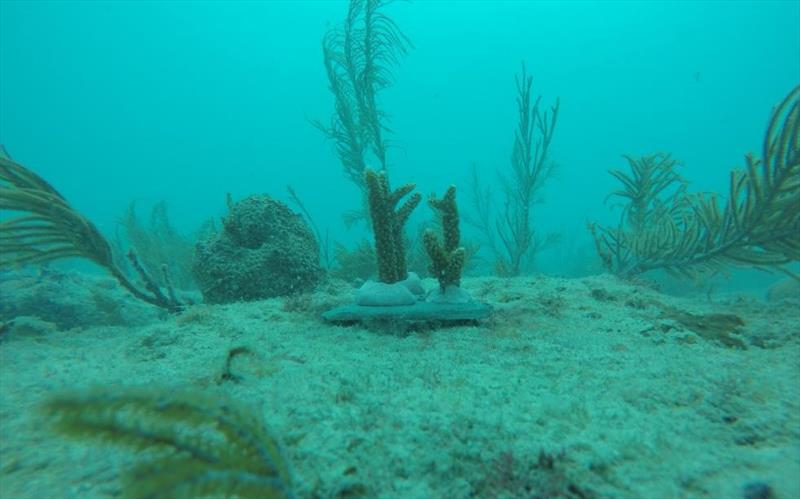
Coral disease risk factors revealed
by Dr Jamie Caldwell 22 Feb 2020 17:08 UTC

Coral reef © World Sailing
Researchers have identified key factors that increase the risk of diseases that threaten coral reefs - and their work could one day be used to predict and manage future outbreaks.
"Reducing disease risk during non-outbreak periods is more achievable than trying to stop a disease outbreak once it has begun," said co-author Scott Heron, Associate Professor at James Cook University (JCU).
"Healthy coral reefs are vital to reef tourism, and disease outbreaks can wreak havoc on coral ecosystems.
"Rather than studying an active outbreak, we focused on understanding the biological, environmental, human-related, and physical drivers of disease."
The research shows that growth anomalies - 'coral cancers' - are more common in reefs with fewer fish, limited water motion, and in areas adjacent to watersheds with high fertiliser and pesticide runoff.
In contrast, infectious disease that cause coral tissue loss are associated with wave exposu¬re, stream exposure, depth, and fewer occurrences of warm ocean temperature.
Common to both disease types is that larger, older colonies are more susceptible to disease than smaller, younger colonies.
"These results significantly boost our ability to predict future outbreaks based on environmental conditions," said lead author Dr Jamie Caldwell, a visiting scientist at the ARC Centre of Excellence for Coral Reef Studies at JCU and a postdoctoral fellow at the University of Hawai'i.
"They could also enable us to manage human-related disease drivers to evade outbreaks altogether.
"This information could be used to improve coastal development plans, by considering the downstream effects of different land-use types on corals."
Because some diseases are rare and hard to observe, it has been difficult in the past to identify which disease drivers were most impactful.
To investigate what drives disease on coral reefs, the researchers used a statistical technique typically used to study human diseases, pairing observations from diseased and healthy corals.
"The methods we used in this study highlight the power of the experimental design common in epidemiology but rarely, if ever, used in ecological studies," said Megan Donahue, co-author of the study and associate researcher at the University of Hawai'i.
The team is now using the relationships they identified to forecast coral disease outbreak risk across the Indo-Pacific.
This is part of a NASA-funded project to develop seasonal and near real-time forecasts of coral disease outbreak risk for all US-affiliated Pacific Islands and the Great Barrier Reef. The forecasts will be publicly available through NOAA Coral Reef Watch, one of the project partners.
Caldwell J, Aeby G, Heron S, Donahue M. (2020). Nature. 'Case-control design identifies ecological drivers of endemic coral diseases'. DOI: doi.org/10.1101/662320.